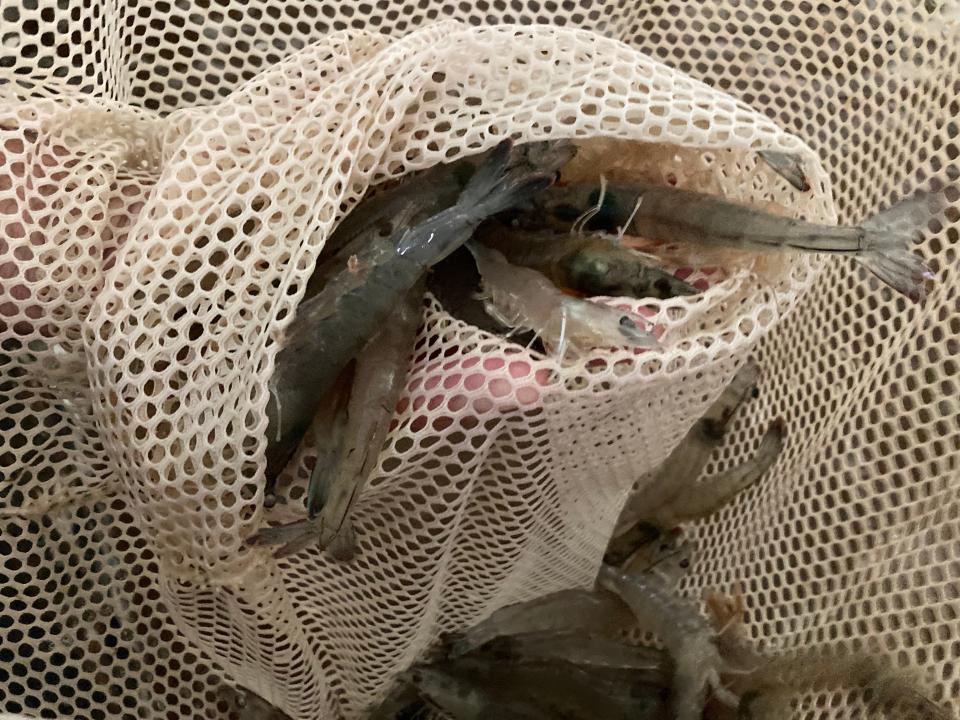Louisiana shrimpers, lawmakers unite to protect domestic fisheries as season begins
The Louisiana Wildlife and Fisheries Commission announced the opening dates for the fall inshore shrimp season Aug. 7.
Meanwhile, Louisiana lawmakers have called on Congress to protect the domestic seafood industry as shrimp harvesters face low prices due to large amounts of imported shrimp.
The Louisiana Shrimp Association joined in a letter that said the influx of imported shrimp has proven especially problematic for domestic harvesters. Nineteen other allied organizations and companies, representing more than 4,000 seafood businesses of the U.S. Gulf of Mexico and South Atlantic region also signed onto the letter.

"Despite rising costs for fuel and labor, the price of Gulf shrimp, for example, has not increased since 1980. For the past 40 years, the average dockside price of Gulf shrimp has ranged from $1.50-$2.00 per 2 pounds," the letter said.
The Louisiana Legislature on June 6 presented House Concurrent Resolution 113 to the Secretary of State. The resolution urges Congress to ban the import of shrimp and crawfish from outside the United States.
"Unfair competition allows foreign competitors to flood the United States market with seafood harvested under intensive farming practices, while devastating local industries and coastal communities built around them," the resolution reads. "Domestically produced shrimp and crawfish offer the best option for the health and safety of United States consumers."
According to the resolution, seafood imported from overseas is not always safe to consume. While the number of outbreaks from imported foods is small relative to all foodborne outbreaks, seafood is the most common type of imported food linked to outbreaks, and the rate of imported seafood outbreaks is increasing. When seafood-related risks are uncovered, communicating the appropriate level of concern can be difficult, a research journal on science direct states.
The Louisiana Shrimp Association submitted a letter from its organization with suggestions to include in the National Seafood Strategy of National Oceanic and Atmosphere Association.
The letter reads, "In 2002 when the European Union started banning contaminated shrimp from global aquaculture farms, the Louisiana Shrimp Association (LSA) was formed. These shiploads of imported shrimp, unfit for human consumption in Europe, were then shipped to the United States and sold at undervalued prices and ruined our domestic market."
The recommendations to the National Seafood Strategy were:
Increase testing and destroying all contaminated products being imported and stored in cold-storage facilities in our country. This includes the ones already in our stores, as determined by board of health testing or whatever means necessary.
The American domestic seafood Industry paid for, fought for and did the work for the tariffs on these dumped shrimp. Please ask our government to return it to the industry by way of fuel subsidies, grants for improvements etc., but mainly to the harvesters, because they are the ones that took the brunt of the price drop. We feel that it belongs to the industry and not our government.
We would like our Federal government to hold foreign imports to the same standards as American Aquaculture (American aquaculture will never be able to compete against forced labor, cheap labor and the use of antibiotics to increase production of shrimp). We believe this to be important for food independence and public health during war time.
"We will continue to work on any and all issues that threaten the collapse of the Louisiana Shrimp industry," The LSA said in a release. "Louisiana Shrimp Association and its members stand strongly united to protect the future of our industry."
This article originally appeared on Lafayette Daily Advertiser: Louisiana lawmakers, shrimpers untie to protecting domestic fisheries

